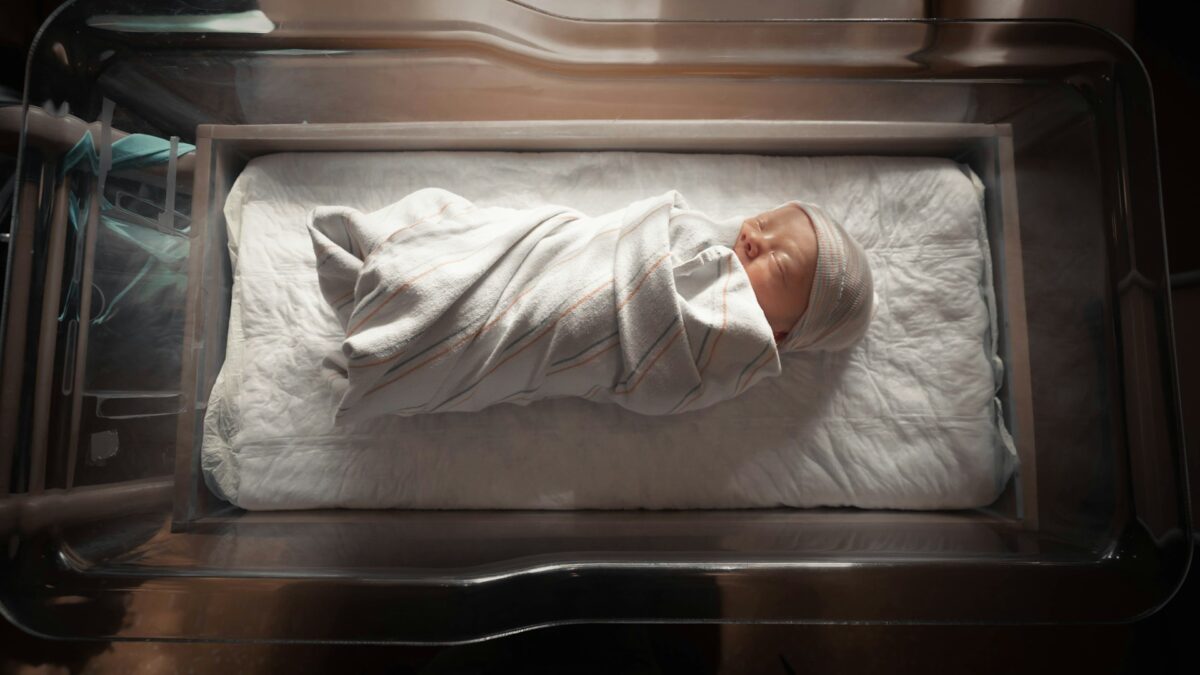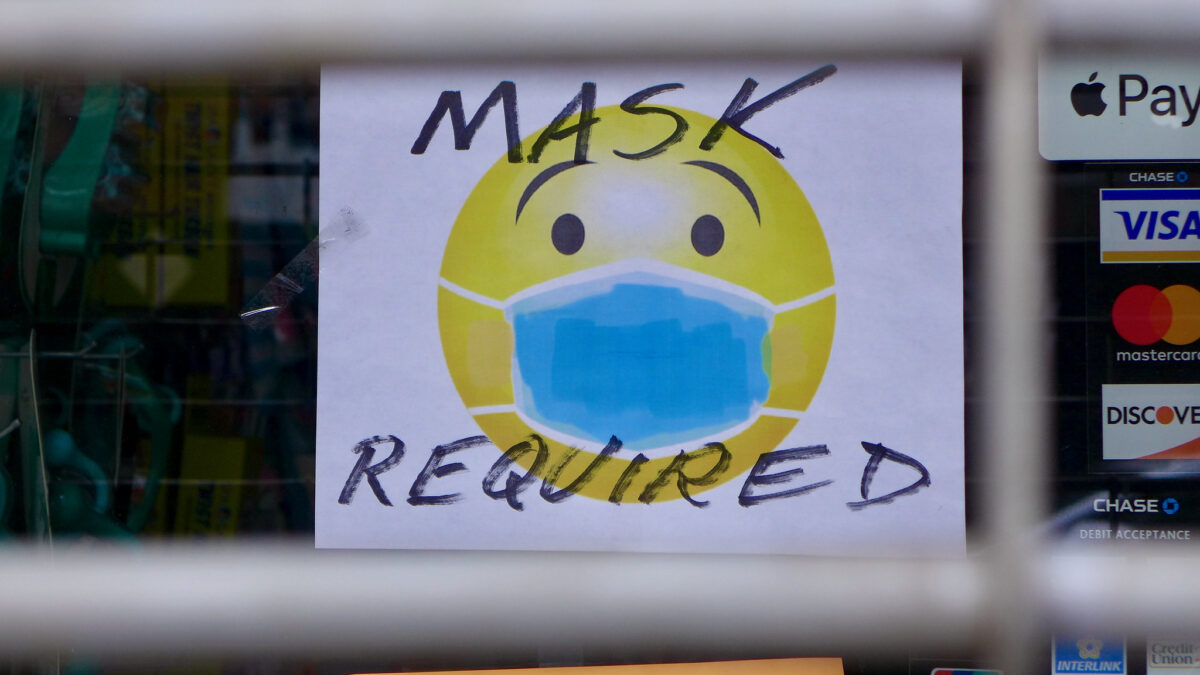While most of the country has moved on from the Covid histrionics of the past three years, some states and medical wards still refuse to live with the virus — and patients in need of life-saving treatments are paying the price.
In Boston, Massachusetts — the city where the Sons of Liberty took a stand against British absolutism in the years preceding the American Revolution — a modern-day patriot is staging his own battle against unjust tyranny. At 43 years old, a man using the pseudonym John Doe is fighting for his life in a legal battle against the Boston Medical Center (BMC), which has denied him access to life-saving medical treatment because he won’t wear a face mask during visits to the clinic.
A born and raised Bostonian, Doe was first diagnosed with HIV in April 2006 and has since been a regular patient at BMC’s Center for Infectious Diseases. As part of his treatment, he undergoes antiretroviral therapy (ART), which includes taking a drug combination tablet once a day and semiannual in-person visits to BMC, where he has his blood drawn for analysis. If Doe doesn’t attend his appointments and get his blood analyzed, his pharmacy will not refill his ART prescription.
Despite strict adherence to his treatment protocol and cordial behavior with BMC staff, Doe’s situation took a turn for the worst after the outbreak of Covid. While able to obtain his medication from the pharmacy through telehealth appointments during Massachusetts’ initial lockdown phase, the return to in-person hospital visits proved difficult after Doe chose not to wear a face mask during clinic visits.
During his first post-lockdown appointment in September 2021, Doe was provided and ordered to wear a mask by BMC staff. According to a copy of his legal filing obtained by The Federalist, Doe had previously experienced “negative medical symptoms from using face masks,” but ultimately complied because he “felt pressured to agree to put the face mask on his face for fear of being deprived of his ART prescription.”
Doe says that throughout his appointment he experienced myriad negative side effects from wearing the mask, including anxiousness and moments where he felt “as if he was unable to get a full breath of air, his eyes itched, and his airway burned from the nose down to below the throat.”
“When I wear a mask, my lips break out where [they start] scabbing and peeling,” Doe told The Federalist. “Basically, I look like I just smoked [or] used drugs. … It’s really embarrassing.”
During his next visit on Feb. 9, 2022, Doe opted not to wear a mask and was denied entry into BMC’s Infectious Diseases facility. While unable to attend his appointment and get his blood analyzed, Doe managed to negotiate with his doctor and pharmacist for an additional six months’ worth of ART prescription refills.
When arriving at BMC for his appointment on Sept. 7, 2022, Doe entered the building without a face mask and proceeded to his doctor’s office without issue. Once there, Doe was confronted by BMC staff, who asked him to put on a mask and alerted security following Doe’s refusal to do so. After an allegedly polite exchange with BMC staff and security, Doe left the facility without undergoing his routine status check.
To date, Massachusetts still requires face masks be worn in certain indoor settings, such as facilities and programs “licensed or operated by the Commonwealth.” This includes emergency medical services, hospitals, and primary and urgent care centers, among others. The health order does, however, exempt “[p]ersons for whom wearing a mask … creates a health risk” from the requirement.
Despite Doe’s fulfillment of one of the listed exceptions under the order (“the face mask or covering affects the person’s ability to breathe safely”), BMC has denied him the option of not wearing a face covering during his appointments. BMC’s legal counsel has argued such an accommodation isn’t warranted because Doe’s “medical record does not support such a request.”
Suddenly, it’s “not ‘my body, my choice’ when choosing not to wear a mask. And as a patient, I have every right to refuse any kind of procedure the hospital tries to impose on me,” Doe said. He also cannot “go anywhere else in Massachusetts [to receive treatment] because it’s the same emergency order across the board.”
As noted in his legal complaint, Doe ran out of his ART prescription on Oct. 12 and sought care at BMC’s emergency room, which denied him access to the medication because of his decision not to wear a mask. Doe has since been able to locate additional ART tablets, which he previously stored for emergency situations. As of his Jan. 6 interview with The Federalist, Doe had “about 14 days’ worth of medication” left.
While there currently isn’t a complete cure for HIV, ART and other medicines have given HIV-positive individuals the ability to live fairly normal lives. If left untreated, however, the disease can develop into AIDS — the “late stage of HIV infection that occurs when the body’s immune system is badly damaged because of the virus.” Without meds for HIV, people with AIDS are given roughly three years to live.
Doe’s Case for Relief
Filed in the Suffolk County Superior Court last month, the lawsuit against BMC alleges eight counts of illegality, including a violation of Doe’s “constitutional right to privacy,” as well as several charges related to medical battery. As part of the suit, Doe has asked the court to provide several forms of relief, including an order requiring BMC to give him ART medication and allow him to resume visits to the facility without a face mask.
“There exists a fundamental right of bodily integrity in common law going back hundreds of years. And basically, no one is allowed to even touch you without your permission or without a clear authority of the law,” Doe’s attorney, Ilya Feoktistov, told The Federalist. “So, whatever there may have been during the pandemic with [respect to] the governor’s emergency orders, that clear authority doesn’t exist and probably didn’t exist during the pandemic to overrule that basic common law.”
He noted that “no one can force an unwanted touch unless there’s clear authority of the law” and that “there’s no mask law” passed “by any legislature” in Massachusetts or at the federal level that would warrant such a scenario. Like nearly all other mask orders across the United States issued after Covid emerged, Massachusetts’ was issued unilaterally by its governor under an emergency statute that was extended repeatedly over the past few years.
Doe’s request for a preliminary injunction has been denied by the court, which claimed Doe “failed to demonstrate either irreparable harm or a likelihood of success on the merits of his claims.”
“It’s not about the law or the complex arguments about the law,” Feoktistov said of the court’s decision. “It’s all about control and a superstitious belief in this face-diaper.”
Feoktistov told The Federalist his legal team will appeal the court’s ruling.
Doe noted his case is a strong example of the U.S. health care industry prioritizing “Covid over everything else.” The state and health establishment are “making it seem like Covid is the deadliest thing in the world, and it’s not,” he said. “I’m hoping this case will start ending the mask mandates and the government’s interference with people’s lives.”
In addition to its promotion of racially divisive ideologies such as wrongly named “diversity, equity, and inclusion” (DEI), BMC’s website is littered with sanctimonious pledges to “care for all people” and “provide exceptional care, without exception.” Under its “Values” section, for instance, BMC lists several principles it purports to abide by, including one titled, “Built on Respect, Powered by Empathy.”
“We care about our patients, employees, and community — and we’re committed to doing right by them each and every day,” it reads.
The Boston Medical Center did not respond to The Federalist’s request for comment.








